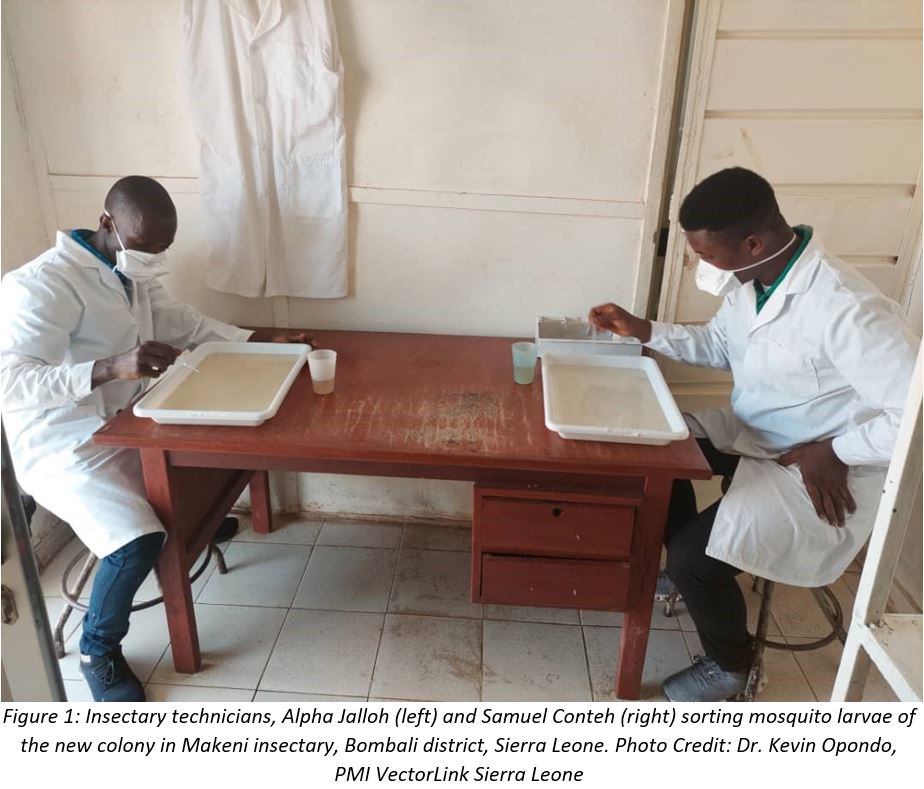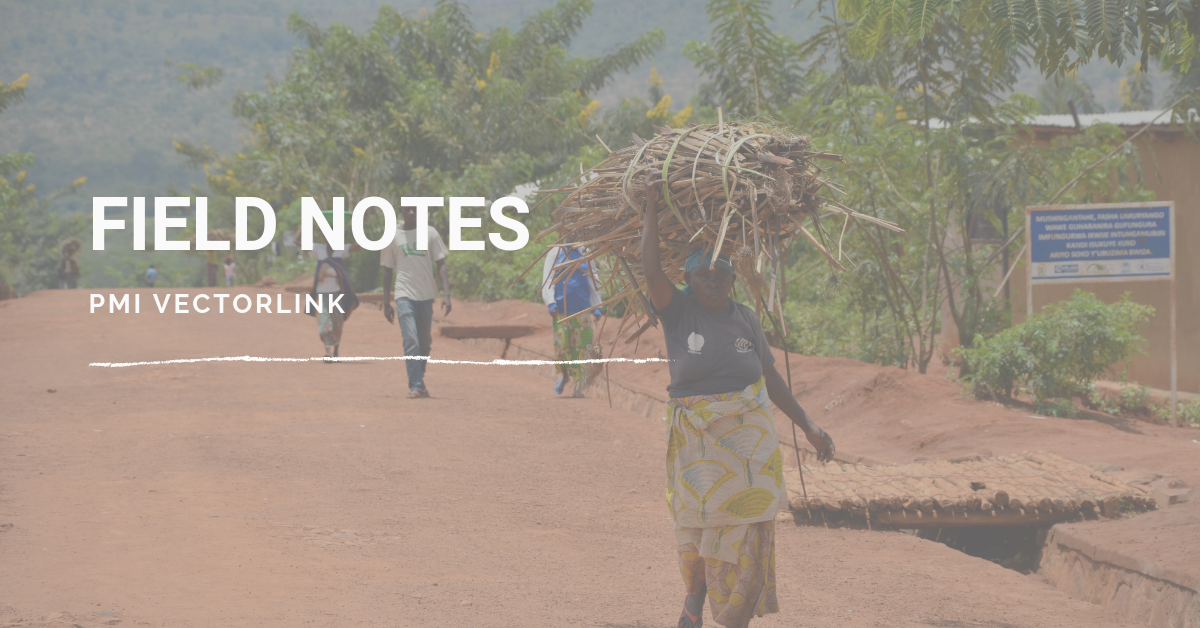Insecticide-susceptible mosquitoes are necessary to test the effectiveness of malaria interventions, but it can be challenging to establish the necessary colonies. This week’s Fist Bump goes to VectorLink Sierra Leone for successfully reestablishing two national insectaries in Makeni and Freetown, used to maintain insecticide-susceptible Anopheles gambiae mosquito colonies. This came after several failed attempts by the team to reestablish the colony.

The dedicated team of insectary technicians, led by Alpha Jalloh and Samuel Conteh, worked day and night to troubleshoot the challenges. The four-day transit period of mosquito eggs supplied by the CDC from the Malaria Research and Reference Reagent Resource Center (MR4) to Sierra Leone meant that several eggs would hatch before arriving at the Freetown insectary. This gave the technicians limited time to grow the few surviving hatched larvae and viable eggs.
After attempting and failing three different times in Freetown, a last-minute decision by the entomology technical team to relocate rearing the last batch shipment to Makeni did the trick. With Alpha Jalloh leading the Makeni team, VectorLink Sierra Leone managed to grow and increase the mosquito numbers until enough were established.
This was instrumental and saw the project achieve one of its key deliverables, ITN effectiveness monitoring, which was over 6-months late due to the absence of a susceptible mosquito colony in the country. This achievement is also great for the Sierra Leone team who could complete the monitoring without the additional cost of shipping the nets outside the country.
The team demonstrated resilience, persistence, and problem-solving abilities to achieve the goal of maintaining national insectaries in collaboration with the National Malaria Control Program (NMCP).
VL Sierra Leone, you are a clear example of perseverance! Excellent work reestablishing the two insectaries.


